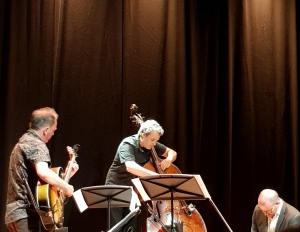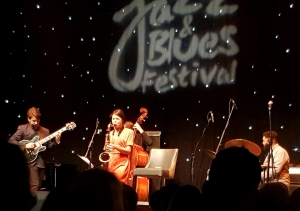
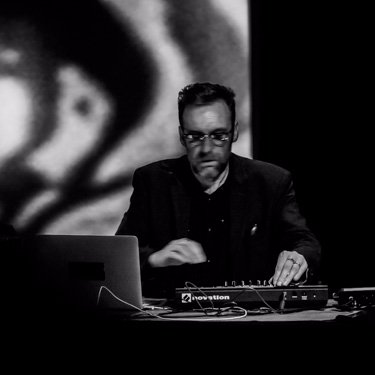
Image of Lubomyr Melnyk by Tonje Thilsen.
Image of Michael Begg from his Twitter account.
The evening opened with a measured, lulling set from East Lothian based contemporary experimental composer, sound artist and musician Michael Begg. Only recently appointed as Associate Artist in Residence at tonight’s venue, he is currently curating the interesting LIMINAL programme there, which according to TQH website, aims to celebrate “the marginal territories bordering contemporary, classical and experimental music”.
With laptops and suspended sea-shell mobile, Begg (for this listener at least) evoked glacial Jacques Cousteau soundscapes, the serenity and beauty even triggering memories of John Luther Adams’ portentous 2013 Become Ocean. However, Begg’s concert tonight had a happy ending, indeed feeling like a contemplative finale to an epic film, with a flutter of bird noises at the very end drawing us back to the surface.
The second part of the evening was contrasting but as interesting. Ukrainian born and Canadian bred Lubomyr Melnyk described Terry Riley’s In C as being his major influence in developing his own unique style. Reportedly the fastest piano music ever played, Melnyk calls it Continuous Music. Throughout the concert Melnyk spoke with considerable candour about his life and music, his belief systems seemingly as evolved and unusual as his pianistic style.
Melnyk played four pieces tonight, each at first appearing all romantic, lyrical fragility, then gradually elaborating, then accelerating so that, with the sustain pedal, the rapid arpeggios interdigitated to produce striking and often beautiful overtones. After a while the effect of the flows and eddies of tones merging one with another, their boundaries blending, became a little mesmerizing. Melnyk described in almost mystical terms, his own experience whilst he played as being one of merging with the sound. Though all tunes were of interest, the final piece Windmills appeared especially complex and demanding of the player.
Now aged 70, it is only for the last six years since his association with Erased Tapes that Melnyk has found a global audience. His last album, the 2018 Fallen Tree has been very well received. Given the level of pianism and the sheer loveliness of the compositions he displayed tonight, it is definitely time for him to be celebrated as an idiosyncratic and major voice in classical music.

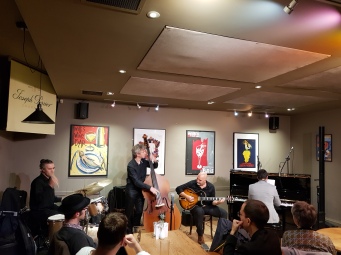
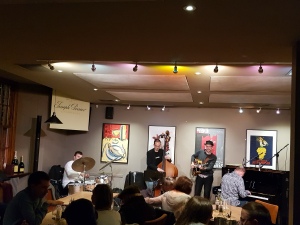 However, first on for the evening was the tasty hors d’oeuvre of Richon’s eponymous quartet. Playing a stream of reassuring standards, these were presented beautifully not least thanks to Richon’s delicate pianism and Gary Laidlaw’s energetic guitar. Hopefully this is a band that will more frequently grace the jazz venues hereabouts, as their lyrical sounds seemed to engender that rare thing, a sense of ease.
However, first on for the evening was the tasty hors d’oeuvre of Richon’s eponymous quartet. Playing a stream of reassuring standards, these were presented beautifully not least thanks to Richon’s delicate pianism and Gary Laidlaw’s energetic guitar. Hopefully this is a band that will more frequently grace the jazz venues hereabouts, as their lyrical sounds seemed to engender that rare thing, a sense of ease.

